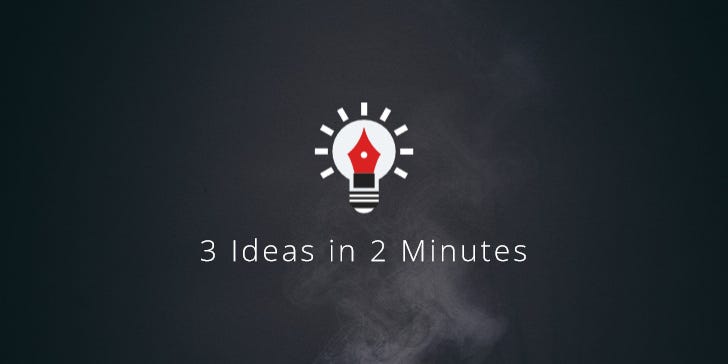#195: Negative Error Culture, Segal’s Law & Noise Bottlenecks
3 Ideas in 2 Minutes on the Downsides of Data
I. Negative Error Culture
Columnist Dave Barry once identified the word “meetings” as “the reason why the human race has not achieved, and never will achieve, its full potential”. But why does nothing ever get done in those important get-togethers? If we believe heuristics guru Gerd Gigerenzer, we can pin it on Negative Error Culture.
Many a committee meeting ends with “We need more data.” Everybody nods, breathing a sigh of relief, happy that the decision has been deferred. A week or so later, when the data are in, the group is no further ahead. Everyone’s time is wasted on another meeting, on waiting for even more data. The culprit is a negative error culture, in which everyone lacks the courage to make a decision for which they may be punished.
―Gerd Gigerenzer, Risk Savvy: How To Make Good Decisions
👉 Sounds familiar? Negative Error Culture seems closely related to Bikeshedding, our tendency to spend more time on trivial issues than important ones.
II. Segal’s Law
My dad used to collect clocks. We had 100s of them everywhere. In the hallway, the dining room and of course the living room where more than 25 of them had found a permanent home. That not only made watching TV at noon an ordeal. You also never knew what time it really was. Which brings us to Segal’s Law:
A man with a watch knows what time it is. A man with two watches is never sure.
We can apply the same conundrum to the noise of the globalised internet age. Arguably, societies that share a single common story have a greater sense of unity and clarity. However, in a world full of conflicting narratives, more information leads to confusion. Unless you know which clock to trust.
III. Noise Bottlenecks
Noise Bottlenecks can emerge when there’s an overload of information, competing narratives, data, opinions, punditry, views, ideas, news sources, perspectives, sentiments or newsletters written by dedicated yet obscure bloggers. The signal gets “jammed up” by noise, that is, irrelevant or excessive data.
Without proper filters, the excess of conflicting information makes it hard to focus on what truly matters. Or worse: It makes us think we’ve become smarter when in fact we’ve been filling our heads with useless info junk. If you’re trying to navigate the sludge, on the other hand, prepare to spend more time and resources to get to an informed decision.
Anyway, I hope to filter out some of the noise for you without adding too much of my own in the form of attempted humour. 🐘
Have a great week,
Chris
themindcollection.com


Bingo! Thanks for the post. You're right on the money!